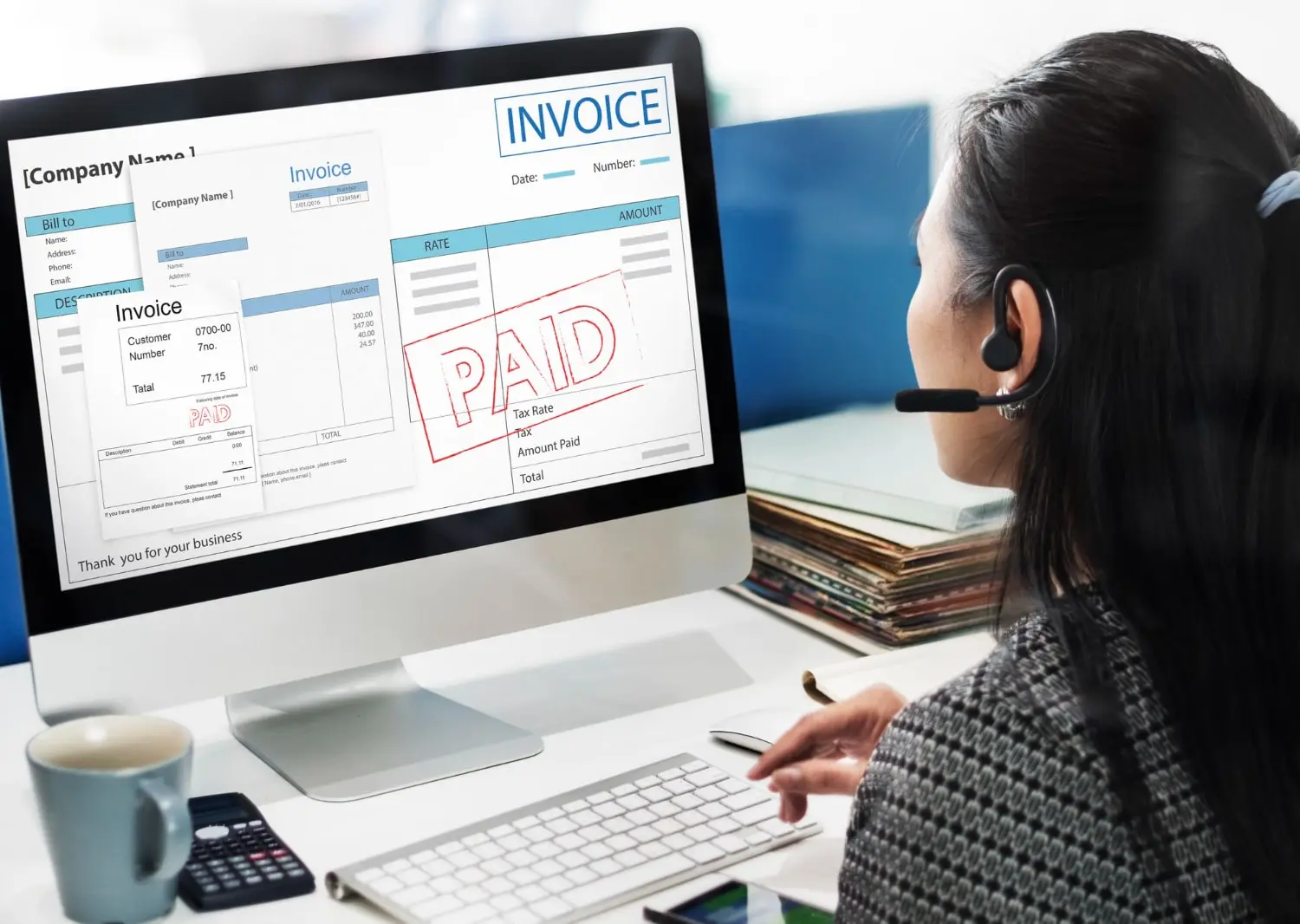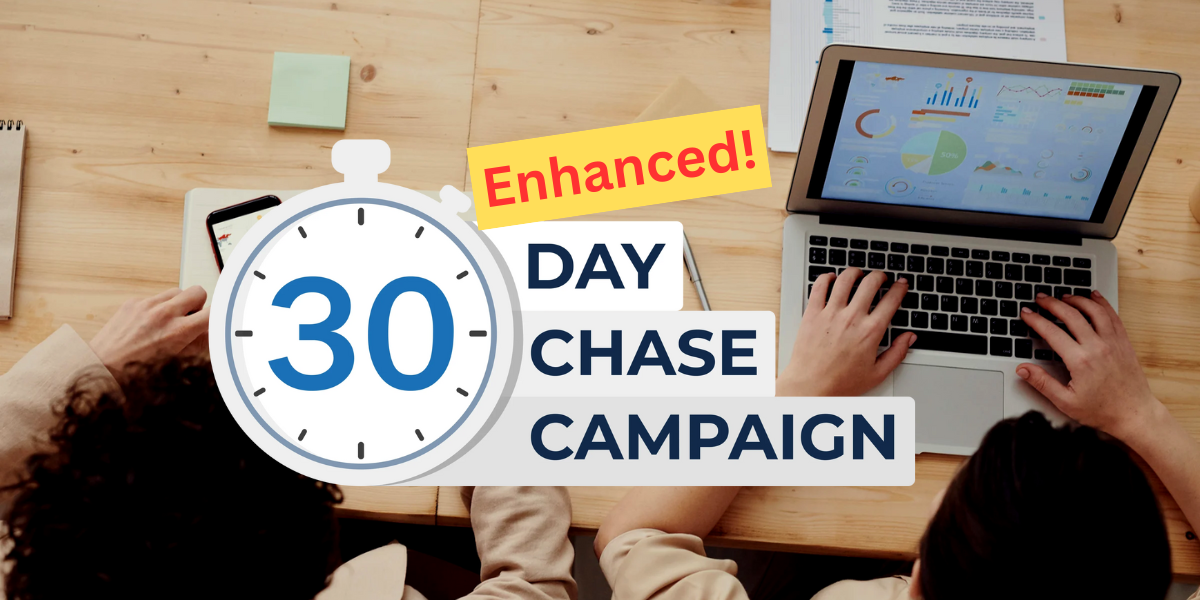What Are Commercial Debt Collection Challenges for US Companies?
Mar 14, 2024

Globally, companies must navigate diverse jurisdictions across different countries, similarly, within the US, the intricate web of state jurisdictions introduces additional complexities, as creditors must navigate varying legal procedures, statutes of limitations, and enforcement mechanisms across the 50 states.
In this article, we explore the commercial debt collection challenges faced by US companies, delving into the nuances of global and state jurisdiction and offering insights into effective strategies for overcoming these obstacles.
Key Highlights
- In the article, we will discuss various challenges US businesses face in commercial debt collection, highlighting the global challenges in debt collection.
- We cover why jurisdictional issues emerge as a significant obstacle, influencing the trajectory of B2B debt collection efforts and requiring collaboration with legal experts.
- We will explore the complexities of 50-state jurisdiction in the US and identify the fastest-moving and most expensive ones for debt collection.
- We will list the best practices for US companies in commercial debt collection.
Commercial Debt Collection Challenges for US Businesses
Successfully recovering commercial debts poses several challenges for businesses and creditors alike. The diverse nature of companies and industries in the USA complicates the process, as different sectors may face unique challenges when attempting to reclaim owed funds. Add to this legal framework varying state regulations, economic fluctuations, and uncertainties.
Addressing all these obstacles requires a nuanced understanding of different jurisdictions, excellent negotiation tactics, years of experience, and implementation of the latest technologies.
Global Commercial Debt Collection Challenges for US Businesses
Global commercial debt collection poses many challenges for businesses. Based on our experience and data analysis, we prepare a list of common difficulties for companies trying to collect their global B2B debts:
- Navigating diverse jurisdictions in different countries.
- Understanding and respecting cultural nuances are crucial when dealing with business debtors from various regions, requiring effective communication strategies sensitive to cultural differences.
- Different time zones can delay communication and timely resolution. Efficient scheduling and communication methods are crucial in overcoming this obstacle.
- Multilingual debtors require effective language solutions for communication, documentation, and negotiation.
- Enforcing legal judgments across borders can be an issue due to variations in enforcement mechanisms, necessitating careful consideration of the feasibility and effectiveness of legal actions.
- Striking a balance between debt recovery and maintaining good customer relationships is crucial, primarily when operating in global markets where reputation and goodwill can significantly impact business success.
Contact Payfor to Handle Your Global Debt Collection
Jurisdiction as a Main Commercial Debt Collection Challenge
The cornerstone of the B2B debt collection process is establishing the appropriate jurisdiction, wielding significant influence over the eventual outcome. In commercial debt collection, jurisdictional intricacies frequently pose formidable difficulties, requiring astute legal navigation.
Determining jurisdiction dictates the applicable laws, procedures, and enforceability, profoundly shaping the trajectory of debt collection efforts. Failure to accurately ascertain jurisdiction can lead to prolonged legal battles, impeding timely resolution, and exacerbating financial losses.
Effective strategies for overcoming jurisdictional barriers necessitate collaboration with legal experts well-versed in diverse jurisdictions and adept at devising tailored approaches. Ultimately, recognising jurisdictional nuances empowers commercial entities to pursue debt recovery with precision and efficacy strategically, mitigating potential setbacks and maximising success rates.
Hire a Professional Agency for Legal Collection
B2B Debt Collection Complexities of 50 State Jurisdiction
B2B debt collection across 50 state jurisdictions in the US presents a formidable challenge for businesses seeking to recover outstanding debts. Each state has unique laws and legal procedures, significantly influencing the commercial debt collection process.
This diversity in jurisdictional frameworks can lead to cross-state disputes and legal challenges, complicating efforts to enforce debt recovery actions. For example, a creditor pursuing a commercial debt collection from a debtor located in a different state may encounter varying statutes of limitations, court procedures, and enforcement mechanisms, requiring legal knowledge and expertise.
Additionally, jurisdictional disputes arising from multi-state transactions or contracts can prolong the debt collection process and increase legal costs.
Fastest and Most Expensive Jurisdictions in the US for B2B Debt Collection
Among US jurisdictions, New York is renowned for being one of the fastest-moving jurisdictions during commercial debt collection processes. Its efficient legal system and streamlined procedures contribute to expedited resolutions. On the other hand, California is often considered one of the most expensive jurisdictions for commercial debt collection due to its higher legal fees, court costs, and complex regulations.
Businesses operating in these states must navigate the unique challenges posed by the speed and cost factors to manage their debt collection efforts effectively. Understanding the dynamics of different jurisdictions is essential for devising successful business debt collection strategies tailored to the specific challenges posed by each state.
Exploring Chapter 11 Bankruptcy and Its Implications
Chapter 11 bankruptcy, a significant facet of corporate insolvency proceedings in the United States, carries profound implications for business-to-business (B2B) debt collection efforts. This bankruptcy chapter allows financially distressed companies to reorganize their affairs and debts while maintaining operations under court supervision.
Unlike liquidation bankruptcy, which involves the sale of assets to satisfy creditors' claims, Chapter 11 focuses on restructuring business debts and developing a plan to repay creditors over time. The process can be complex for creditors pursuing outstanding debts from a company undergoing Chapter 11 bankruptcy, as they must navigate the intricacies of the bankruptcy proceedings.
While Chapter 11 offers debtors a chance to emerge from financial distress, creditors may face challenges in recovering the amounts owed, as the bankruptcy process often prioritizes the debtor's reorganization and rehabilitation. Commercial creditors may be required to participate in court hearings, submit claims, and negotiate with the debtor's representatives to reach a mutually acceptable resolution.
Despite its challenges, Chapter 11 bankruptcy can allow creditors to recoup a portion of their outstanding debts, albeit with potentially reduced repayment amounts and extended timelines. However, the outcome of Chapter 11 proceedings can vary significantly depending on the debtor's financial circumstances, the effectiveness of the reorganization plan, and the court's decisions.
Individual Liability: Legal Actions Against Directors During B2B Collection
In B2B debt collection, there are instances where creditors may pursue action not only against the debtor company but also against its individual director. This course of action typically arises when there is evidence of personal liability on the part of the director for the company's debts, for example:
If the director has provided a personal guarantee for the debt, thereby assuming personal responsibility for its repayment.
If the director has engaged in fraudulent or wrongful trading practices that have contributed to the company's inability to repay its debts, they may be held personally liable.
If they breached their fiduciary duties by misappropriating company funds or engaging in reckless financial management, they could face personal liability for the company's debts.
In cases where the company has been dissolved or liquidated, creditors may also seek to pursue the individual director if they can demonstrate that the director acted improperly or unlawfully to avoid paying the company's debts.
It's important to note that pursuing action against individual directors in B2B debt collection requires careful consideration and legal consultation to ensure sufficient evidence to support such action and navigate the complexities of personal liability in corporate settings.
Hire a Professional Agency for Legal Collection
Contractual Elements in Commercial Debt Collection
Contractual elements present a formidable challenge in business debt collection, primarily shaping the enforceability of late payment penalties. The efficacy of debt recovery often hinges on the precision and clarity of contractual agreements. Ambiguities or discrepancies within these agreements can significantly impede the collection process, complicating efforts to secure owed funds.
The contract terms dictate the rights and obligations of both parties involved, influencing the strategies employed in B2B debt retrieval. Moreover, contractual intricacies necessitate a meticulous approach, requiring debt collectors to navigate legal frameworks and adhere to established procedures. Understanding and interpreting contractual elements is essential for mitigating obstacles and achieving successful debt collection outcomes.
Negotiating the nuances of contracts demands expertise and diligence, underscoring the importance of skilled professionals in commercial debt collection.
Best Practices for US Companies in Commercial Debt Collection
Managing and recovering outstanding B2B debts is crucial for maintaining financial stability and sustaining business operations. Companies must follow best practices to enhance their efficiency and maintain legal compliance.
- Ensuring transparent and comprehensive contract terms to mitigate disputes.
- Maintaining detailed documentation of all transactions and communications.
- Accelerating the invoicing process to address payment obligations promptly.
- Implementing clear payment terms and deadlines in invoices.
- Establishing open channels of communication to address payment issues proactively.
- Incorporating polite yet firm communication to encourage cooperation from business debtors.
- Staying current with debt collection jurisdiction across various states.
- Hiring an experienced and reputable commercial debt collection agency to handle complex and time-consuming collections.
- Using debt collection legal recovery services to navigate legal nuances and improve recovery rates.
- Exploring negotiation and settlement options before resorting to legal actions.
Contact Us to Return Your Debt in 30 Days
 Author: Giles Goodman, Founder CEO of Payfor Limited
Author: Giles Goodman, Founder CEO of Payfor Limited
Drawing from his solid experience in commercial debt collection, Giles
offers invaluable expertise in solving claims owed between companies worldwide. Through his writing,
Giles shares insights tailored to business owners, leveraging his wealth of experience to provide practical
guidance and support.
Disclaimer:
This blog post is intended for informational purposes only and should not be construed as legal advice. The information provided in this post is based on general principles and may not apply to specific legal situations. Laws and regulations vary by jurisdiction and can change over time. Readers are advised to seek professional legal counsel before making any decisions based on the information provided in this blog post. Payfor Ltd is not a law firm and does not provide legal services. The company disclaims any liability for actions taken based on the contents of this blog post.
More Blogs & Insights

How to Chase an Overdue Invoice and How to Implement Effective Reminder Systems

What is the AR Process Workflow and Should you Automate it?

Is It Time to Outsource Accounts Receivable? 5 Signs to Look For and a Cost-Benefit Analysis

Accounts Payable vs Accounts Receivable Key Differences Explained

Comprehensive Guide on Debtor Days Calculation: Formula, Examples and Strategies

How to Handle Business Invoice Disputes With Clients?

What is Accounts Receivable and the Equation for Net Accounts Receivable

The Impact of AR Delays and Strategies for Efficient Accounts Receivable for Spanish Businesses

What is DSO: Learn How to Improve Payment Speeds

How Currency Fluctuations Complicate International Debt Collection

Phoenixing vs Insolvency: Knowing the Difference Could Save Your Business Thousands

Why Small Businesses Are the Biggest Victims of Late Payments in 2025

How Payfor Secured €600,000 for a Ukrainian Tech Firm Against a UK Giant

Spotting Compliance Gaps in Debt Collection Before They Cost Your Business

The Dangers of Partnering with a Debt Collection Agency Without Real Legal Backing

How to Overcome Language and Cultural Hurdles in International Debt Collection

Why Too Much Paperwork Hurts Debt Collection Results

What a Good Recovery Rate Really Looks Like in Global Debt Collection Agencies

How Overcomplicated Debt Collection Processes Delay Your Payment

How Poor Debtor Tracing Damages Your Reputation and Delays Recovery

Why Some Debt Collectors Fail After First Contact and How to Ensure Full Recovery

The Problem with One-Size-Fits-All Debt Collection Strategies and How to Get Better Results

Why You Should Be Concerned If Your Debt Collector Doesn’t Give Regular Updates

The Risks of Misidentifying Debtors in International Debt Recovery and How to Prevent Them

How to Avoid the Costly Mistake of Aggressive Debt Recovery Without Pre-Action Steps

Why Paying Upfront to Other Debt Collectors Often Leads to Bigger Losses

How US Investors Can Recover Money from Failed International Joint Ventures

The Best Way for American Exporters to Collect from Foreign Buyers

How US Businesses Can Recover International Debts Without Expanding Their Legal Team

Recovering Debts After a Business Acquisition or Merger

Understanding the Commercial Debt Collection Struggles Faced by Startups

How Payfor Recovered a $780,000 Hollywood Merchandising Dispute

How an Indian Software Developer Got Paid with Help from Payfor
Payfor was able to collect the outstanding debt by negotiating a resolution between the two companies.

What is Corporate Recovery? How to Recover a Six-Figure Corporate Debt
A Comprehensive Guide to Collecting £100k-£250k Unpaid Invoices from International Businesses

How a Ukrainian Tech Company Secured Payment from a Saudi Debtor
The Ukrainian company had done everything they needed...

Why Most Commercial Debts Remain Unpaid Despite Hiring a Lawyer

How a Portuguese Recruitment Firm Recovered 80% of Its Outstanding Invoices
A recruitment company based in Portugal was owed money from clients in the UK, Portugal and Germany.

$750,000 Production Loan Default Recovered Through Payfor Legal Recovery

How Payfor Recovered a $450,000 Location & Equipment Rental Dispute for a Hollywood Client

The Psychology Behind Legal Recovery and Why It Works

What Legal Recovery Looks Like with Payfor on Your Side

When Debt Collection Fails and Legal Action Becomes the Only Way Forward

Hollywood Insurance Claim Dispute Worth $510,000 Resolved with Payfor’s Help

Securing Payment for Unpaid Post-Production Services Worth $430,000

How We Overcome Frustrating Debt Collections
A Welsh SaaS business was owed money by a London financial services company.

What is Global Debt Collection?
Global debt collection is when a collection agency or company actively tries to collect debts from debtors across international borders.

Commercial Debt Collection Laws in the UK: A Comprehensive Guide
Understanding the legal framework governing commercial debt collection is paramount for both creditors seeking restitution and debtors aiming to protect their rights.

How to Collect Debt From a Business That Repeatedly Refuses to Pay What They Owe
At the start of the Covid Pandemic in the UK early 2020, companies started owing each other money left, right and centre…

How Payfor Helped a Hollywood Studio Recover $612,000 in Sponsorship Fees

How Payfor Helped Resolve a $750,000 Box Office Revenue Sharing Dispute in Hollywood

How Payfor Helped Resolve a High-Value Hollywood IP Infringement Case

How Payfor Resolved a $620,000 Dispute on a Hollywood Distribution Agreement

How Payfor Recovered a $750,000 Talent Payment for a Hollywood Actor

Can You Recover Debt from a Defunct Company? What to Know About Insolvency and Liquidation

What Happens After a Court Judgment? Debt Enforcement Stages Explained

Resolving a $190,000 Licensing Dispute Between Two Record Labels

How Payfor Helped A Record Label Recover Six-Figure Copyright Infringement Damages

How Payfor Helped Recover Over $400,000 in Unpaid Royalties for a New York Record Label

How Payfor Supports Energy Sector Clients in Recovering High-Value Debts

Additional Actions Payfor Pursues Without Further Notice

What Payfor Does If a Debtor Doesn’t Pay Within 5 Days

Legal Recovery for Ad Agencies Left Hanging After Production

Why Delaying Legal Action Can Weaken Your Case

The Dangers of Legal Action for Debtors

Introducing Our Enhanced 30-Day Chase Campaign

How Payfor Recovered $500,000 from an Elusive Debtor in UAE

The $1 Million Debt That Payfor Recovered When Everyone Else Had Given Up

The Three Essential Stages of Effective Debt Collection

Why Debtors Respond to Us When They Ignore Everyone Else

Why Debt Recovery in the Construction Industry Is So Complex—And How to Overcome It

Is Debt Recovery Always Aggressive? Debunking the Myth

£100,000 Recovered from a French Startup by UK-Based Technology Company

The True Cost of Unpaid Invoices for UK Businesses

$120,000 Recovered from a California-Based Tech Giant for an Israeli Software Firm

When Is a Debt Truly Unrecoverable? Knowing When to Write It Off

Top 5 Debtor Excuses We Hear All the Time—And How We Handle Them Professionally

When to Escalate: Signs It’s Time to Hire a Debt Collection Agency

The Psychology of a Debtor: Why They Delay—and How to Get Paid Faster

How Debt Collection Agencies Are Evolving in a Tech-Driven World

Why Businesses Worldwide Trust PayFor with Their Debt Recovery

What Businesses Are the Most Vulnerable to Debt?

7 Skills Every Successful Debt Collector Must Have

How Debt Recovery Agencies Work Within Regulatory Frameworks

What to Expect When Hiring a Debt Collection Agency

A Costly Lesson in Market Vulnerability

How We Recovered a SaaS Subscription Debt Without Litigation

How Persistence Secured a $36K Software Debt Recovery

When a Strong Contract Isn’t Enough: Navigating a Disputed £35K Recruitment Debt

Helping a Global IT Company Recover £37K from a Venture-Backed Biotech Firm

Turning a 600-Day Debt Stalemate into a Strategic Settlement

Leveraging Legal Pressure in a Recruitment Fee Dispute Against a New Jersey Real Estate Development Company

Cloud Infrastructure Billing Dispute between a Global Server Platform and a Ukrainian IT Company

Strategic Recovery in a Cross-Border Financial Dispute between a Ukranian App Developers and a Dublin-based Piracy Protection Platform

Effective Debt Recovery for a London-Based IT Firm

Successful Debt Recovery for a Silicon Valley Software Company

How to Effectively Manage Overdue Payments with Debt Collection Agency

How No Win No Fee Arrangement Works in Debt Collection

Balancing Recovery and Customer Retention in Business Debt Collection

The Evolution of Commercial Debt Collection Practices

Legal Considerations in Commercial Debt Collection Cases

Cereal Entrepreneurs: Mastering the B2B Debt Collection Game

4 Successful B2B Debt Collection Cases

How Commercial Debt Collection Services Help Large Corporations

Top 5 Challenges in B2B Debt Collection and How to Overcome Them

How to Collect Debt From a Business That Repeatedly Refuses to Pay What They Owe?
Coping with a business that repeatedly refuses to pay its debts can significantly impact your cash flow and hinder your company's growth.

Out-of-Court Settlements for Ukrainian Businesses Commercial Debt Collection
As enterprises strive to maintain cash flow and financial stability, resolving commercial debt disputes efficiently becomes crucial for Ukrainian businesses.
How to Track Down a Debtor That’s Gone Missing?
Tracking down a missing debtor can be challenging, but several effective methods can increase your chances of success.

How the Letter Before Action Works in Commercial Debt Collection
One of the most effective tools at a creditor's disposal is the letter before action (LBA). This formal notice is a precursor to legal proceedings and offers a final opportunity for debtors to settle their obligations without court intervention.

Steps to Take Before Engaging a Debt Collection Agency
Hiring a commercial debt collection agency can be immensely helpful for businesses facing challenges in recovering outstanding debts. Professional agencies possess the expertise and resources necessary to efficiently manage business debt recovery.

How to Deal With Reactions to Your Commercial Debt Demand Letter?
Learn how to effectively manage and respond to a range of reactions received following the issuance of your commercial debt demand letter.
Business Debt Collection Best Practices for Israeli Tech Businesses
As the Israeli tech industry thrives on continuous development and investment, managing outstanding debts efficiently becomes crucial to ensure that financial stability is not compromised. Implementing best practices for debt collection tailored to each firm's unique needs can significantly mitigate these risks.

What is Commercial Litigation?
Defined as the legal process of resolving business-related conflicts through the court system, commercial litigation covers many issues - breach of contract, business torts, shareholder disputes, and intellectual property disagreements.

Commercial Debt Collection for Small and Medium Enterprises (SMEs) in Ukraine
Small and medium enterprises (SMEs) play a crucial role in Ukraine’s economic growth and job creation. However, many SMEs grapple with cash flow challenges due to market fluctuations.

The Role of Professional Debt Collection Agencies for Ukrainian Businesses
In Ukraine's dynamic business scene, managing outstanding business debts is challenging and can strain resources.

Best Strategies for Commercial Debt Management: Advice From an Expert
In today's competitive landscape, businesses must navigate complex financial relationships while balancing cash flow and creditor obligations.

How to Recognise Early Warning Signs of Business Debtors?
Recognising the early signs of a potential debtor is crucial for maintaining a business's financial health. Many companies encounter clients who, despite initial promises, fail to uphold their payment obligations, which can significantly impact cash flow and operational stability.

How Can You Recover a Debt in the US When You Are in Portugal?
Distance, legal disparities, and practical hurdles create complexities for Portuguese businesses seeking to recover commercial debts from businesses in the United States.

Commercial Debt Collection Laws for Ukrainian Businesses
Ukrainian businesses frequently grapple with managing financial obligations and recovering debts. The legal framework for commercial debt collection is vital for maintaining economic stability and fair market practices.

What to Do When a Client Cancels a Business Agreement?
When a client cancels a deal, it can significantly disrupt your business operations, impacting both your financial stability and strategic planning.

International Commercial Debt Collection Laws Explained
International debt collection involves pursuing debts from debtors in different countries - a challenge heightened by diverse legal systems, cultures, and language barriers.

What Happens If You Lose a Commercial Debt Collection Lawsuit?
Unpaid debts can pose significant challenges to business financial stability. When traditional methods fail to resolve these outstanding dues, companies may take legal action, such as a commercial debt collection lawsuit.

When to Use a Commercial Debt Collector?
Businesses often face challenges in recovering payments from clients or customers when managing outstanding debts.

How Long Can You Legally Be Chased for a Commercial Debt in the UK?
In the UK, the statute of limitations for pursuing a commercial debt is typically six years, starting from the last acknowledgment or payment date.

What is Commercial Debt Factoring in Business?
Companies often seek innovative solutions for cash flow management and financial challenges, such as commercial debt factoring, where accounts receivable are sold to a third-party factor at a discount.

How to Recover a Commercial Debt in the US When You Are in Israel?
If you are an Israeli business seeking to recover a commercial debt owed to you in the United States, it's essential to understand the intricacies and procedures involved in such a pursuit.

Legal Procedure for Commercial Debt Recovery
Commercial debt recovery can be a complex and challenging process for businesses. From unpaid invoices to overdue payments, encountering debtors unwilling to settle outstanding dues is a common predicament.

How Do Businesses Benefit From Offshore Jurisdictions?
Offshore jurisdictions like Switzerland and the Cayman Islands are a prevalent strategy for companies engaged in commercial debt collection or aiming to enhance their financial and tax planning initiatives.

How Do You Write a Demand Letter for Commercial Debt?
Unpaid business debts can be challenging for commerce businesses. When traditional debt collection methods fail, turning to legal recourse becomes necessary.

How to Avoid Late Payments in B2B Transactions?
Late payments pose a significant challenge for businesses, impacting cash flow, profitability, and overall financial stability.

Commercial Debt Statistics: Facts and Numbers
Commercial debt plays a vital role in business finances, acting as both a driver for growth and a potential indicator of a company's financial stability.

Why Payfor Is Different From Other B2B Collection Agencies?
Unlike other agencies, Payfor prides itself on its unique approach to commercial debt recovery, blending industry expertise with a commitment to client satisfaction.

How to Calculate Business Debt: A Comprehensive Guide
Understanding and accurately calculating business debt is essential for maintaining financial stability and making informed decisions.

How to Recover a Debt in the US When You Are in Egypt?
Given the geographical and legal barriers, recovering a debt in the United States while residing in Egypt can present a formidable challenge.

What are Commercial Debt Collection Challenges for Startups?
Startups often encounter unique hurdles when it comes to recovering owed funds. From establishing effective credit policies to navigating legal complexities, startups must navigate myriad obstacles to ensure timely payments and maintain financial stability.

Negotiation Tactics in Debt Recovery: The Psychology of Persuasion.
Commercial debt recovery is an essential, yet intricate, facet of business operations that requires an amalgamation of skills—from legal understanding to business acumen.

How to Recover Debt in the US When You're in Ukraine?
Navigating the complexities of debt recovery across international borders presents unique challenges for businesses, particularly when seeking to recover debts owed in the United States while operating from Ukraine.

Is Legal Recovery the Answer When Your Business is Owed Money Across Borders?
When your business faces the challenge of recovering owed money from companies operating across international borders, legal recovery emerges as a strategic imperative.

How Do Commercial Debt Collection Recovery Campaigns Work?
Commercial debt collection recovery campaigns are intricate processes designed to retrieve outstanding debts owed by businesses to creditors.

Why Jurisdiction Is the Most Critical Factor in Commercial Debt Collection?
When it comes to commercial debt collection, one question often trumps all others: "What is the key most important factor when chasing a debt?"

What is the Difference Between Arbitration and Issuing Legal Proceedings/Litigation?
The choice between arbitration and litigation is a pivotal decision that can shape the course of dispute resolution.

What is Amicable Recovery?
Amicable Recovery is a consensual and cooperative debt collection method that aims to settle outstanding payments without resorting to judicial measures. This process often commences with a courteous reminder, followed by mutually beneficial negotiations, in an effort to secure payment.

What is Jurisdiction in Global B2B Debt Collection?
Jurisdiction determines the legal authority and framework within which commercial debt collection efforts can be pursued across international borders.

How to Determine if a Debtor is Solvent Enough to Repay Debt: An Expert Guide
In the intricate world of commercial debt collection, one of the most challenging yet imperative tasks is assessing the solvency of a debtor.

Small Business Debt Collection: A 7 Point Guide
This guide covers seven key points, ranging from understanding legal frameworks to negotiating payment plans. It equips small business owners with the knowledge and tools necessary to successfully pursue outstanding debts.

What is Commercial Debt Collection?
Commercial debt collection is when a third-party agency recovers unpaid debts owed by one company to another. The recovery agency contacts the company owing the debt requiring it to pay the debt.

What Are Commercial Debt Collection Challenges for US Companies?
Commercial debt collection presents myriad challenges for US businesses, including complex jurisdictions and contractual elements.

How Much Debt Should a Business Have?
Striking the right balance between business debt and equity is paramount for maintaining financial health and sustaining growth.

Commercial Debt Collection Challenges and Solutions for Ukrainian Businesses
In today's economic climate, Ukrainian companies encounter many obstacles when recovering commercial debts.

How is Bad Debt Defined in Business: A Short Explanation
The term "bad debt" holds significant importance for businesses and can often signal trouble for enterprises of varying sizes.

What is a Creditor in Business?
A creditor is a party that has provided goods, services, or monetary resources to a business on credit, expecting repayment within an agreed timeframe.

What is a Commercial Debt for Business?
Commercial debt is the amount of money one business entity owes to another for goods or services provided on credit terms.

What Should Businesses Expect From a Modern-Day Debt Recovery Agency?
Modern debt recovery firms are redefining industry standards by offering strategic financial solutions alongside traditional collection efforts.

How to Safeguard Your Business: Expert Tips for Choosing Reliable B2B Partners and Clients
In today's rapidly evolving business landscape, establishing robust B2B partnerships and securing dependable clients are pivotal to achieving growth.

What Are Commercial Debt Collection Challenges and Solutions for UK Companies?
Navigating the complexities of commercial debt recovery in the UK presents many challenges that demand a strategic understanding and adept handling.

A Comprehensive Guide to Commercial Debt Collection for AI Companies
As AI businesses often market their technology globally, cross-border trade is a notable challenge they face.

How Does Commercial Debt Collection Work for Recruitment Companies?
As recruitment agencies strive to connect employers with suitable candidates, the issue of outstanding payments can become a common challenge for them.

What are Debt Collection Agencies: Their Role in Financial Recovery
The debt collector is mainly an agency creditors hire to recover money owed by businesses that have failed to make timely payments on their debts.

Commercial Debt Collection Issues for IT and Software Development Companies
The billing models, project timelines, and evolving client requirements create an environment where debt recovery becomes a complex and nuanced process for IT and Software development companies.

Business Debt Collection Etiquette: How to Preserve B2B Relationships
In the ever-evolving landscape of business, maintaining positive relationships with other companies is crucial for long-term success. However, as businesses engage in commercial transactions, they may encounter instances where debtors are not forthcoming, acting in bad faith, or having a hidden agenda.

What is a Debtor in Business: Essential Guide
Commercial debtors, in essence, refer to entities that owe money to a business for goods or services provided. This financial relationship forms a critical component of the broader commercial ecosystem, shaping a business's cash flow dynamics and overall financial health.

What to Do if a Company Owes You Money: Resolving Unsettled Debts
In a business relationship, there might be situations where a company owes you money, and the path to resolution may not always be clear. When faced with this challenge, it's crucial to approach the situation with a level head and a strategic plan.






